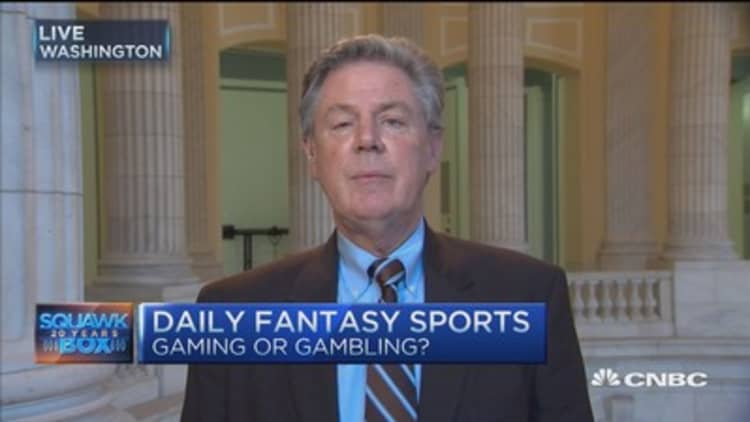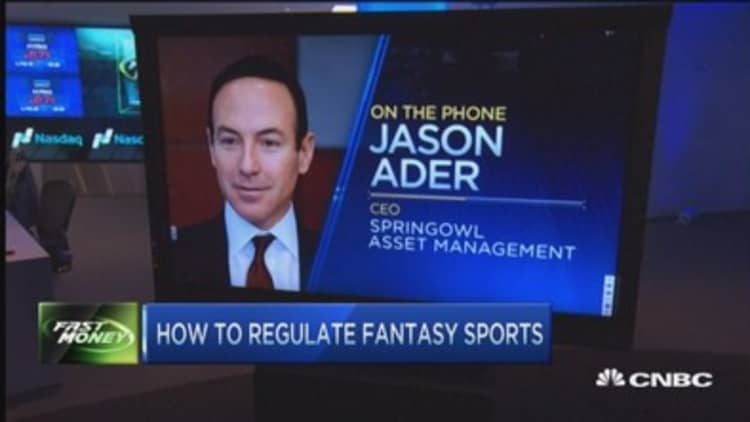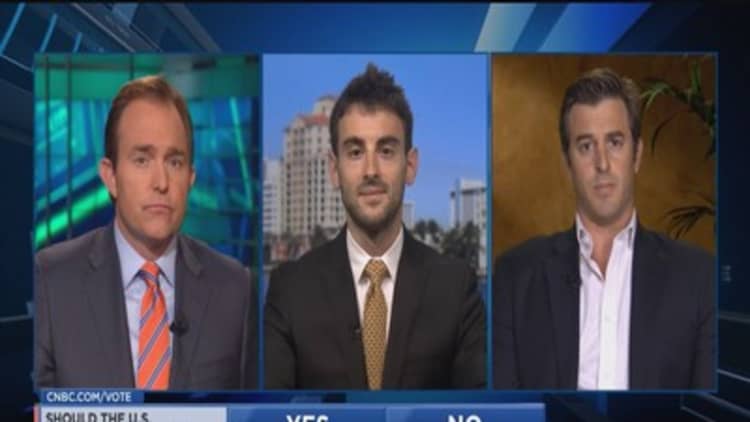


After "insider" betting claims put the unregulated daily fantasy sports industry under a microscope, more rules may be inevitable. Yet in making games fair for consumers, regulators would need to tread carefully to avoid stifling the booming segment's growth, according to experts.
Calls for more industry oversight increased last week after a DraftKings employee accidentally posted nonpublic information about a contest, fueling concerns that he may have used that information when he won $350,000 at rival site FanDuel in a previous bet. Regulators wasted no time cracking down on the sites, with New York Attorney General Eric Schneiderman announcing he would open an inquiry into daily fantasy sports. DraftKings and FanDuel have since commissioned prominent lawyers to review their internal policies, and banned employees from playing the contests for money.
Read MoreDraftKings, FanDuel make millions, and give them away
Amid increased scrutiny, observers say more rules will likely emerge to hold daily fantasy companies accountable. Conflict may arise, though, over who should control regulation — the industry, the government, or a separate organization entirely.
Rep. Frank Pallone, D-N.J., called for congressional hearings on the industry, telling CNBC last week that the operators are "gaming the system."
Pallone said: "Take it out from the shadows. Make sure it's regulated and the system is fair for players."
Game of skill, or gamble?
In daily fantasy sports, players buy into competitions and can make cash based on the performance of the athletic lineups they pick. Laws vary by state, but the competitions generally are categorized as games of skill, so they're not regulated like gambling is.
Read MorePro sports teams' secrets just got more valuable
Venture capital darlings DraftKings and FanDuel came into the national spotlight with a barrage of advertisements and sponsorship at the start of the National Football League season. The fast-growing companies have paid more than $100 million to television networks combined since the start of September, according to estimates by TV analytics firm iSpot.tv.
The promotional blitz has certainly helped — more than four million people will play daily fantasy games on DraftKings and FanDuel this year and pay an estimated $2.6 billion in entry fees, according to Adam Krejcik, a partner at Eilers Research. Yet experts believe the cash pouring into the industry underscores the need for more transparency.
"The self-regulation the fantasy sports operators claim to utilize is inefficient. What we've seen this last week is deeply troubling," said Daniel Wallach, a sports and gaming attorney at Becker & Poliakoff. "There's a cure and the remedy is regulation."
Read MoreMeet a guy who makes a living on fantasy sports
Experts see multiple advantages to more regulation. Transparency would help consumers understand their risks in playing daily fantasy, as most money wagered ends up filtering to a handful of elite players, some of whom have a professional gambling background.
Those concerns are exacerbated by DraftKings and FanDuel advertisements, which often promote regular people who won hundreds of thousands of dollars in contests against enormous odds.
Additionally, daily fantasy sports or professional franchise employees currently face no criminal or civil backlash for sharing or selling confidential information to big-money players. Self-regulation by the industry may not deter that behavior in the future, Wallach said.
Ultimately, more regulation will promote fairness in daily fantasy competitions, said Seth Young, chief operating officer at daily fantasy site Star Fantasy Leagues. He contended that a regulator without ties to daily fantasy operators will serve the industry best.
Read MoreDraftKings, FanDuel probe ups daily fantasy doubts
However, Young noted that a new oversight organization would need to take care not to act too quickly and "rake operators over the coals."
"Regulation needs to effectively addressed concerns without putting people out of business," he said.
Young outlined risks like putting "onerous" restrictions on where people can play. He also said that imposing tougher standards on how consumers can pay for contests could also deter participation.


